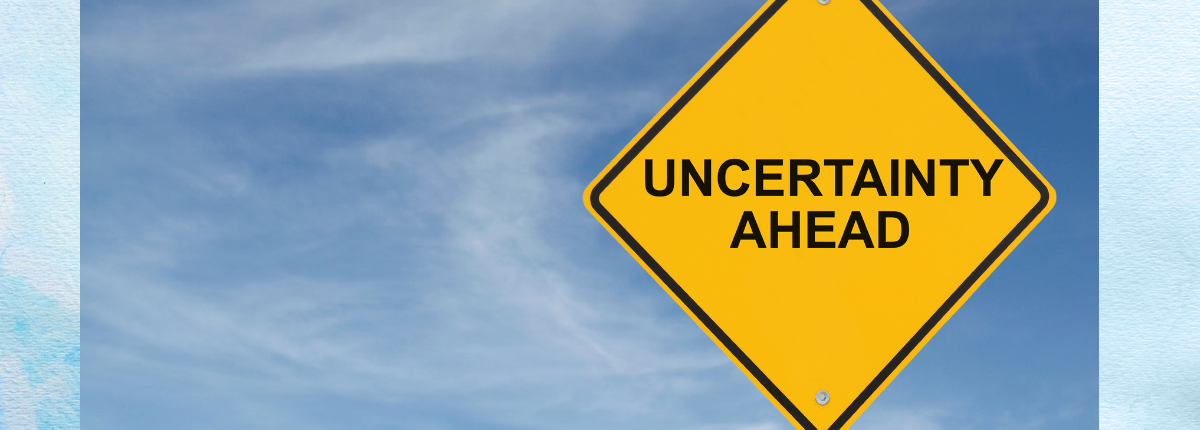Finding Calm in Uncertainty
How mindfulness can provide a refuge when everything seems like chaos
Things feel very uncertain these days, and this is a major cause of stress.
Uncertainty is something that the historical Buddha talked about. Even 2000 years ago,
this was a topic of concern. We are not alone in feeling uncertain.
Let’s hear from Pema Chodron on the topic:
“To be fully alive, fully human, and completely awake is to be continually thrown out of
the nest.” Uncertainty is part of life.
What is Uncertainty?
From a Buddhist perspective,
uncertainty is closely tied to impermanence and the nature of sufferring.
“All conditioned things are impermanent – when one sees this with wisdom one
turns away from sufferring.” – Buddha
Everything is impermanent.
By knowing all is impermanent, we also know that the future is uncertain.
This is challenging because human nature is to seek security – in relationships,
in routines, with possessions – and impermanence disrupts our perception of
control.
Seeking control gives us a false sense that we can bend the will of life to what we
prefer. This only fuels stress and anxiety –because inevitably we can only control
so much. We can control ourselves. We can control our actions. We can learn to
control our re-actions.
We cannot control how others see us, we cannot control how other people react
to things, we cannot control the weather, we cannot stop time. We cannot
reverse time. We have some control over our own bodies, but not complete
control. We can’t control aging, random ill health, catching a cold – our of your
full control. Believing otherwise leads to clinging. Clinging is a cause of suffering.
How Mindfulness Helps Uncertainty
Mindfulness is a tool. When we are mindful, we pay attention to the present
moment with kindness and curiosity.
Mindfulness helps cultivate awareness without judgement. We can name things
as pleasant, unpleasant, neutral instead of more judgemental terms like awful or
terrible.
Mindfulness helps is come into the present moment amidst the unknown. When
we get caught up in worry about the future or regret about the past, we aren’t in
the present moment. The present moment is where we have control and can
make our next best move. Worrying about things we can’t affect is a big energy
drain and waste of time.
Acceptance of what we can’t control is important. There is a big difference
between resisting uncertainty vs accepting it. We can’t control uncertainty, we
may as well stop fighting against it. This reduces our own stress.
Resisting always creates more sufferring. It takes far more energy to resist things
than it does to allow reality to be just as it is.
Practical Tools for Working with Uncertainty
-Using the breath for grounding. Take slow, deep breaths. Pay attention to wherever you
notice the breath the strongest. It could be the rise and fall of your chest, swirling in the
throat, air at the tip of the nose. Shift focus to wherever this is and breathe for a minute.
Mindful awareness – when encountering uncertainty, consciously remind yourself to
observe and not rush to conclusions.
-Gratitude practice shifts our focus. List 3 things you are grateful for to change to a
positive mindset. Things are good somewhere – even if it’s just that the sun is shining
today or that you have clean air to breathe.
-Self compassion. When we feel out of control we can drop in with self compassion. Put
your hand on your heart and say “It’s okay” “I care” or “I can to this” to tap into our own
inner support system.
Most importantly, practice builds resilience! Like most things, the more we practice
working with uncertainty, the better we get at dealing with it. Once we get through a
practice we know we have done it before and we can do it again when we need to.


